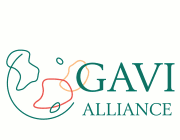1.
Immunization pilot of the International Finance Facility (IFF)
2.
Next Board teleconference, EC meeting
1.1 Commended WHO for organizing the meeting of 25-26 August.
1.2 Endorsed the general programmatic directions agreed at the meeting regarding the further development of the proposal for the IFF immunization pilot. The criteria for country eligibility and the programmatic balance of investments will need to be clearly justified in the revised proposal.
1.3 Endorsed and agreed to recommend to the GAVI Board the proposal to use the GAVI/The Vaccine Fund country application, review and support process, modified as necessary, as the governance and allocation mechanism to disburse funding from the IFF immunization pilot. At this stage modifications should be limited only to those most essential for implementing the IFF immunization pilot; others modifications should be considered within the existing processes to revise and improve GAVI procedures.
1.4 Endorsed the key founding principles for the governance and allocation mechanism of the IFF immunization pilot proposed in the paper drafted by WHO, ‘Principles, Governance and Operational Mechanisms’, namely:
1.4.1 It should be country-driven and strengthen and complement existing and ongoing initiatives for immunization, within the scope of the Global Immunization Vision and Strategies currently under development.
1.4.2 It should contribute to, and not detract from, overall health systems strengthening.
1.4.3 It should be aligned with poverty reduction strategies and oriented towards achieving the Millennium Development Goals.
1.4.4 Funding should be prioritized to activities which are appropriately "frontloaded", benefiting from having higher levels of funding in the short term to minimize future aid needs in the long term.
1.4.5 The funding should be aligned with and contribute to the strengthening of countries' existing systems and cycles of planning and budgeting for the health sector and immunization [including Sector-Wide Approaches (SWAp), Medium Term Expenditure Frameworks (MTEF), Multi-Year Plans for immunization, etc.].
1.4.6 The funds should not displace existing immunization resources, and should be disbursed in ways that strengthen the ability of countries to take over the financial responsibility of their immunization programme.
1.4.7 Funds should be set aside for international partners (specifically WHO and UNICEF) to provide technical assistance to countries for planning and proposal development, as well as implementation, including systems strengthening and monitoring.
1.4.8 The allocation mechanism should allow for additional technical support based on needs as determined by performance monitoring and other necessary processes.
1.4.9 Reporting requirements for monitoring and evaluation (and/or for the application process) should be streamlined.
1.5 Agreed to submit by email to Joy Phumaphi any additional comments on the above paper.
1.6 Approved the creation of a special IFF immunization pilot task team to support the work on the development of the IFF immunization pilot (replacing the ‘trio plus’ group). It will be chaired by Joy Phumaphi; its composition will correspond to that of the GAVI working group.
1.7 Requested WHO to clarify exactly what is needed by DFID – both in response to the DFID Secretary General’s 9 August letter to the GAVI Chair, as well as the project proposal requested by 1 October.
1.8 Agreed that the GAVI Board should have an opportunity to review the revised IFF immunization pilot proposal prior to its submission to the donors on 1 October. The draft will therefore be distributed to the GAVI Board on 20 September and discussed on the 29 September Board teleconference.
